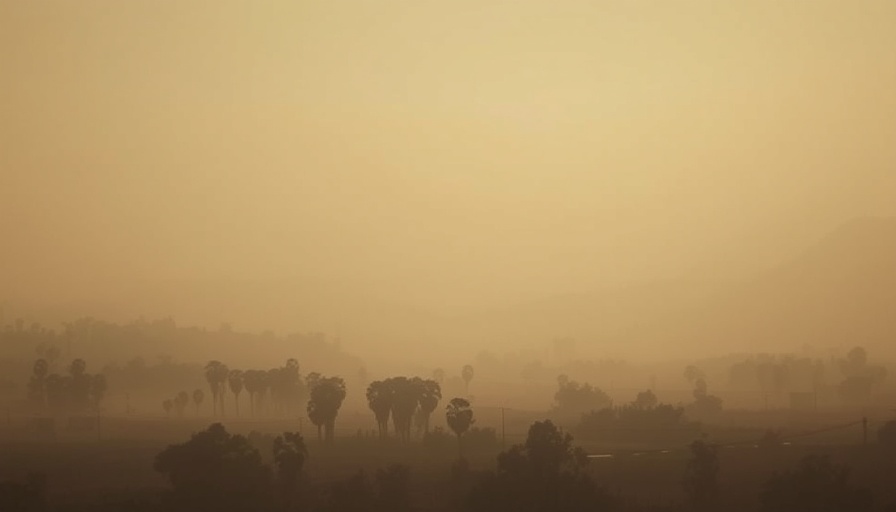
Understanding the Devastating Impact of the L.A. Wildfires
The Los Angeles wildfires have wreaked havoc across communities, underscoring the ongoing threat of natural disasters exacerbated by climate change. This week's grim confirmation of a 31st victim, a resident of Altadena, adds to the toll taken by these catastrophic events. The ongoing investigation into the fires reveals much about the human cost and the broader implications for environmental policy.
The Human Cost of Wildfires: A Rising Death Toll
As officials confirm the identity of the latest victim, anxiety about safety and accountability in fire management practices continues to mount. The Eaton fire, which burned in January, killed 19 individuals, while the Palisades fire claimed 12 lives, marking the disaster as the second deadliest wildfire incident in California's history. Tragically, funeral services and memorials for these individuals have become a poignant reminder of the increasing danger wildfires pose, especially in dry regions.
Search and Recovery Efforts: Challenges in Finding Victims
Search and recovery efforts following wildfire disasters are fraught with challenges. Often, little remains in the aftermath, complicating the process of identifying victims. The Los Angeles medical examiner's struggle to confirm identities speaks to the broader issue of recovery in natural disasters. Similar situations arose following the devastating Maui fires, where officials continued to identify remains nearly a year after the destruction.
Community Response and Recovery: Rebuilding Lives and Homes
With the fire's aftermath still palpable, communities in Pacific Palisades and Altadena are grappling with recovering from the loss. So far, progress has been slow; while some debris has been removed, many homes and businesses remain in ruins. The psychological toll on families affected by the fires extends beyond physical loss, impacting mental health and community cohesion.
Lessons Learned: Addressing Climate Change and Fire Management
The frequency and severity of wildfires should prompt a reassessment of fire management strategies and climate policies. California's increasing wildfire risk highlighted the dire need for comprehensive strategies to address climate change, focusing on both prevention and preparedness. Emphasizing sustainability in urban planning and fire-resistant infrastructure could mitigate future disasters.
Looking Ahead: Can We Prevent Future Catastrophes?
As climate change continues to present unprecedented challenges, it is imperative to foster dialogue around the necessary changes in policies and community practices to protect against wildfires. Education and awareness initiatives could empower citizens to take personal responsibility, fostering a culture of preparedness and resilience in vulnerable communities.
In conclusion, the ongoing aftermath of the Los Angeles wildfires serves as a somber reminder of our collective vulnerability to nature's fury. The continuing search for answers, accountability, and recovery is pivotal in preparing for future threats. Families affected by such tragedies deserve deep support. Together, we must take actionable steps in managing and preparing for the extensive ramifications of climate-related events.
 Add Row
Add Row  Add
Add 




Write A Comment